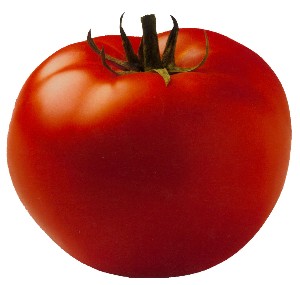You are here
I have 1,000 sq feet of garden space
And I want to plant a vegetable garden next spring. I'd like to plant veggies that I like, obviously, but also try to keep produce prices in mind in the selection process so that I don't waste precious space on inexpensive produce.
Potatoes are out. Carrots are questionable, but I do have about 12 linear feet of 12 inch deep containers that I can also muster into action on my deck. I've thought about using them for radishes and green onions.
I've had spotty success over the years with sweet peppers, and wonder if the Pacific NW is hot enough and has a long enough growing season for chile peppers, which I also use a lot. Any recs as to pepper varieties that do well in this region would be appreciated.
Sweet corn does well here, and is pricey even when in season, but seems space intensive. Am I wrong on this?
Grean beans are a must, as are tomatoes, lettuce, collard greens and some cukes.
My wife likes eggplant, and I'm ambivalent on it...how many plants would you suggest for home use? Would 4 or 5 do it?

I wouldn't worry about
I wouldn't worry about wasting space in a garden that size. Honestly. Just plant what you like. Potatoes are fun to grow. You can grow more exotic varieties rather than plain ol' russets. Home grown carrots are so sweet and delicious. Again, peruse the better seed catalogs and find some heirloom varieties that have real flavor. That goes for everything you grow.
If you have a short growing season start your seeds indoors in March. If you can grow tomatoes in pdx area you can grow peppers.
Corn does take a lot of space. But you have it so go for it if you want.
lettuce like cooler weather so start it early. I grow mine all winter. I am in zone 7. I cover the lettuce bed with plastic to protect it. No other heat source is needed.
6 eggplant are enough, I would say.
have fun!
Eggplants need a lot of heat
I live hundreds of miles south of you, and even here it does not get warm enough to get more than just a few pathetic looking eggplants.
You should definitely plant snow peas and sugar snaps at this time of year. Not only do they grow in the cold season, they also are quite expensive in the store (and of course they're delicious, esp. when sauteed.
Don't forget to plant garlic either. It's the right time now, then harvest in early summer....
My methods and rules for gardening
I try to use a few simple rules when I garden. First is to plant what grows well where I live. Sometimes I try other things, but I limit space to them. Second, I grow only the things my family likes to eat. I have grown other things and found they went to waste. Finally, I try to plant things so that I get multiple crops of the same land every year. For example, I plant garlic and shallots in the fall and harvest them in late June. I then plant potted tomatoes after the garlic/shallots are done. I plant sugar peas in early February and finish harvesting by first week of June. Then replant that with kohlrabi and carrots. Just make sure the seed you buy is the correct seed for your season. Also, when selecting seed, sometimes you need to get varieties that have shorter maturation times due to the short season in Portland. Finally, I try to grow crops that are most expensive to buy like raspberries and strawberries. I like to get the ever-bearing types. One of the important aspects that I have found is also to make sure that you grow crops in a way that you get staggered production. The last thing you want is to get a bunch of stuff all at once and at other times not have anything to eat. I plan when the main crops will mature and fill in the other times with lettuce, cabbage, artichoke, and mustard green. A useful exercise I go through each year is to list the vegetables I like and grow well here, then draw a time line and shuffle them around until it looks like I will have something to harvest most of the time. Due to weather variations, it never comes out as you plan, but I try to anticipate this by planting seeds of different maturation dates. Good luck.